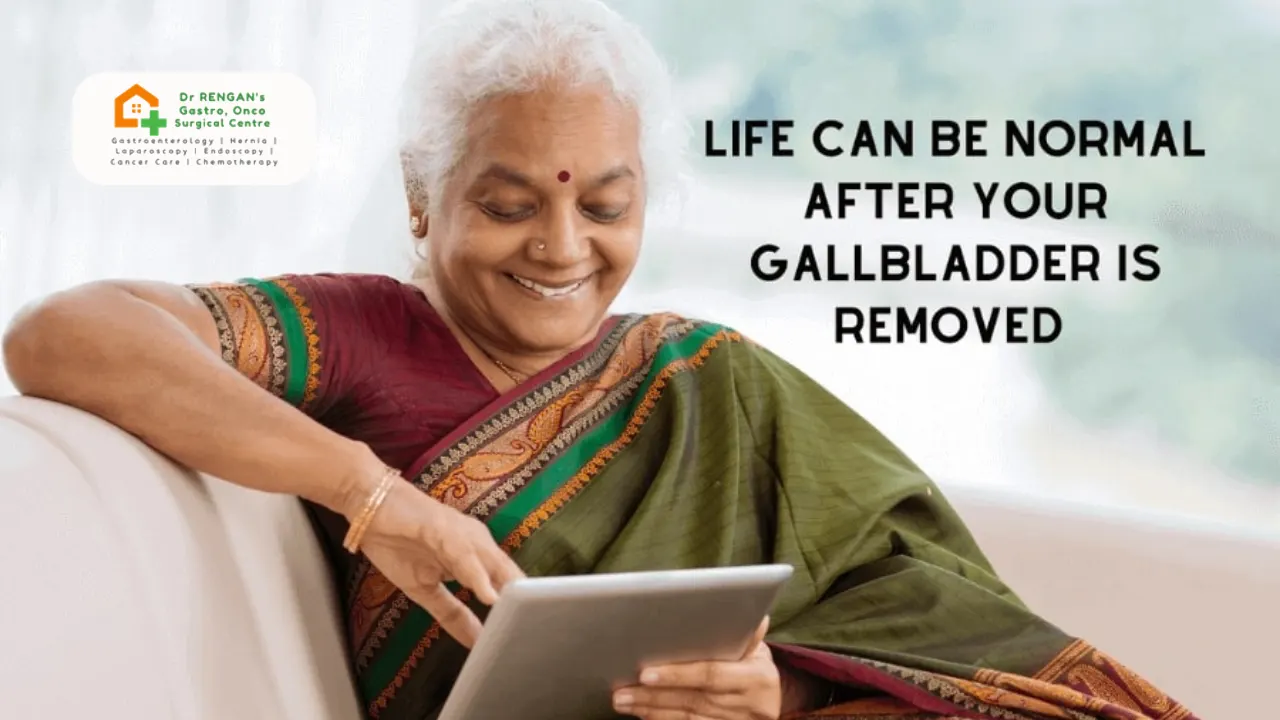
Living A Healthy Life After a Gallbladder Removal Surgery
In most cases of a patient with gallbladder issues, surgeons suggest surgical removal of the gallbladder. The gallbladder of a patient is removed for reasons like infections, inflammation, called cholecystitis, gallstones, gallbladder polyp. One does not require a gallbladder to survive. And after a gallbladder removal surgery, many patients do not witness a real change in their digestion too. However, in a few cases, there is a chance that one could experience uncomfortable symptoms from living without a gallbladder. This is very rare though.
Can You Live Without a Gallbladder?
You can live a fully normal life without a gallbladder. Your liver continues to produce enough bile for digestion; it simply flows steadily into your digestive system instead of being stored.
The gallbladder is a pear-shaped organ on the right side of ones abdomen, beneath the liver. The role of a gallbladder is to hold a digestive fluid called bile which is released into ones small intestine. Bile is a liquid that aids an individual in digesting fatty foods. Thus, without a gallbladder, bile will not be stored, and the body will not have as much bile in the intestine. As a result, food may not digest as well especially foods that are fatty, greasy, or high-fiber. The patient may experience gas and bloat. After the gallbladder removal surgery, few patients experience the loose motion that usually lasts for a few weeks. In this case, a patient must stay on a low-fat diet.
Digestive problems after gallbladder removal
In the first few weeks after a gallbladder removal surgery, surgeons typically recommend the patients to consume a mostly low-fat diet as the body adjusts to living without a gallbladder. Eventually, most patients resume eating the way they did before. The most common change in the digestion of the patient after the surgery is more frequent bowel movements.
However, people who have trouble digesting their food after the surgery can make the following lifestyle changes.
- Avoid consuming fatty foods, such as fried foods
- Eat small and frequent meals
- Do not eat a very large dinner after fasting all-day
- Decrease the amount of fiber intake
- Lessen the caffeine intake
How long can you live without a gallbladder?
Gallbladder removal does not reduce your life expectancy. The absence of a gallbladder in the body does not reduce the life expectancy of a patient. On the contrary, dietary changes that a patient makes post-removal can increase life expectancy.
As the patient starts eating smaller amounts of fats, oils, dairy products, and processed foods, he/she can also lose weight. With a healthy weight, one can reduce his/her risk of developing high blood pressure, heart disease, diabetes, and even cancers. Lastly, lesser calories per day can also help the patient live longer by making the body digest food and utilize energy more efficiently.





